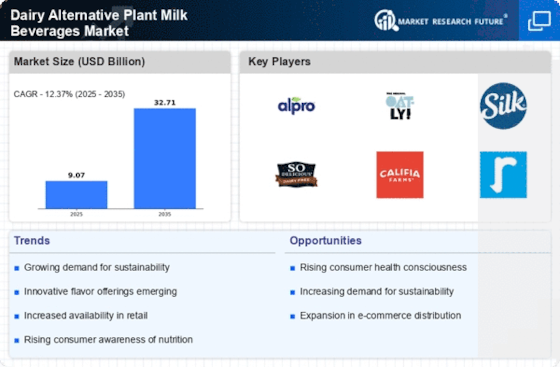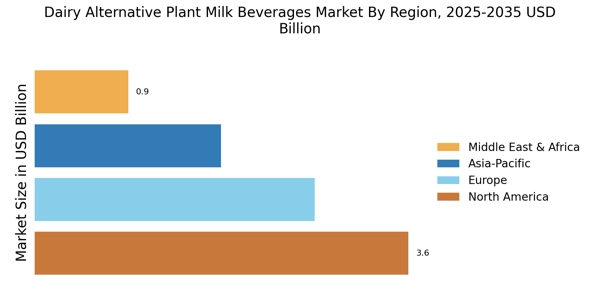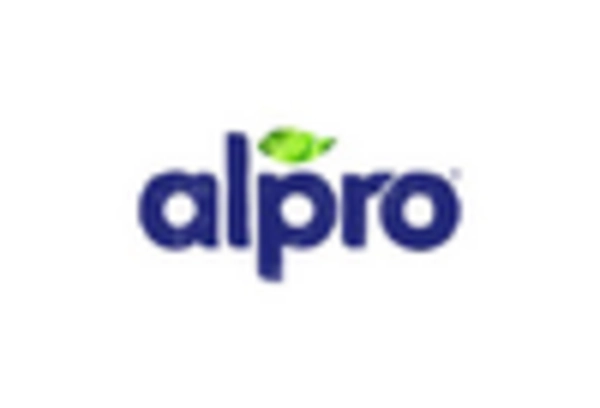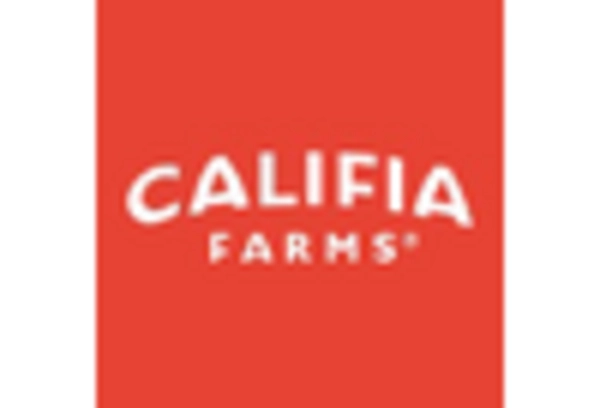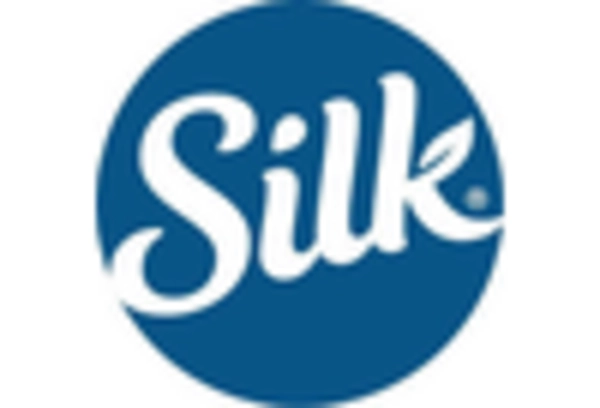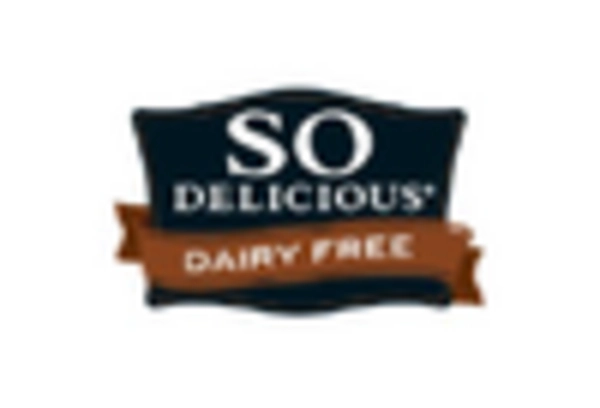Convenience and Accessibility
Convenience and accessibility are emerging as key drivers in the Dairy Alternative Plant Milk Beverages Market. As consumers lead increasingly busy lifestyles, the demand for ready-to-drink beverages is on the rise. Plant-based milk products are often available in convenient packaging, making them easy to consume on-the-go. This trend is particularly appealing to younger demographics, who prioritize convenience in their purchasing decisions. Recent market analysis indicates that single-serve plant milk products have seen a significant increase in sales, reflecting this consumer preference. Additionally, the expansion of distribution channels, including online retail and grocery stores, enhances accessibility for consumers. As the Dairy Alternative Plant Milk Beverages Market continues to adapt to these changing consumer needs, it is likely to see sustained growth driven by the demand for convenient and accessible plant-based options.
Innovation in Product Offerings
Innovation in product offerings is a crucial driver for the Dairy Alternative Plant Milk Beverages Market. Manufacturers are continuously developing new flavors, formulations, and nutritional enhancements to attract a diverse consumer base. For instance, the introduction of fortified plant milks with added vitamins and minerals caters to health-conscious consumers seeking functional beverages. Additionally, the rise of unique flavors, such as oat, almond, and coconut, has expanded the market's appeal. Recent market data suggests that flavored plant milks are gaining traction, with sales increasing by over 15% in certain regions. This trend indicates that consumers are not only looking for alternatives to dairy but are also interested in variety and innovation. As companies invest in research and development, the Dairy Alternative Plant Milk Beverages Market is likely to witness continued growth driven by these innovative offerings.
Health Consciousness Drives Demand
The increasing awareness of health and wellness among consumers appears to be a primary driver for the Dairy Alternative Plant Milk Beverages Market. As individuals become more health-conscious, they seek alternatives to traditional dairy products that align with their dietary preferences. This trend is reflected in the rising consumption of plant-based beverages, which are often perceived as lower in calories and cholesterol. According to recent data, the plant milk segment has experienced a compound annual growth rate of approximately 10% over the past few years. This shift towards healthier options is likely to continue, as consumers increasingly prioritize nutritional benefits, such as high protein content and added vitamins, in their beverage choices. Consequently, the Dairy Alternative Plant Milk Beverages Market is poised for sustained growth as it caters to this evolving consumer demand.
Rising Veganism and Plant-Based Diets
The rising trend of veganism and plant-based diets is significantly influencing the Dairy Alternative Plant Milk Beverages Market. As more individuals adopt vegan lifestyles for health, environmental, or ethical reasons, the demand for dairy alternatives is surging. Data indicates that the number of people identifying as vegan has increased substantially in recent years, leading to a greater acceptance of plant-based products. This shift is not limited to a niche market; it appears to be permeating mainstream consumer behavior. Consequently, the Dairy Alternative Plant Milk Beverages Market is experiencing a notable uptick in sales, as brands expand their offerings to cater to this growing demographic. The increasing availability of plant-based options in retail and foodservice channels further supports this trend, making it easier for consumers to choose dairy alternatives.
Sustainability and Ethical Considerations
Sustainability concerns and ethical considerations are becoming increasingly influential in shaping consumer preferences within the Dairy Alternative Plant Milk Beverages Market. As environmental awareness rises, many consumers are gravitating towards plant-based options that are perceived as more sustainable than traditional dairy. The production of plant milk typically requires fewer natural resources, such as water and land, compared to dairy farming. This shift is supported by data indicating that plant-based milk alternatives can reduce greenhouse gas emissions significantly. Furthermore, ethical concerns regarding animal welfare are prompting consumers to seek dairy alternatives that align with their values. As a result, brands that emphasize sustainable sourcing and ethical production practices are likely to gain a competitive edge in the Dairy Alternative Plant Milk Beverages Market, appealing to a conscientious consumer base.


